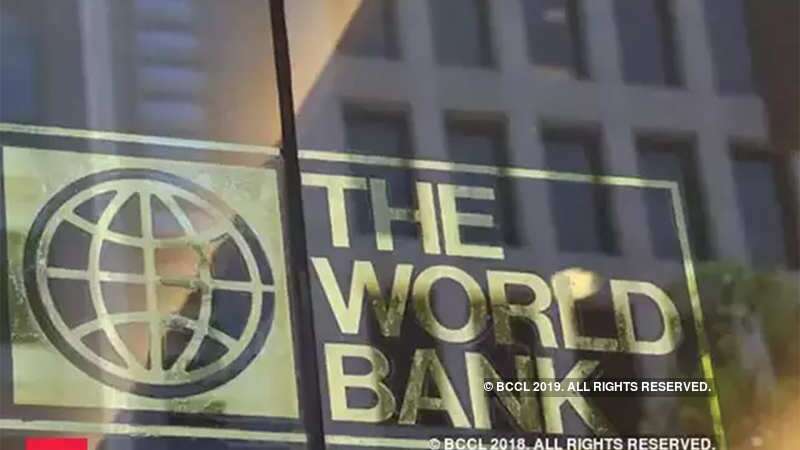CEM REPORT, ECONOMY | Nigeria’s GDP has been projected to decline further to 2.9 percent in 2023 and continue as such in 2024.
This is a result of a weak oil sector which is believed to drag the growth momentum of the non-oil sector.
The projection was declared by the World Bank in its 2023 Global Economic Prospects report published recently.
“In Nigeria, growth is projected to decelerate to 2.9 percent in 2023 and remain at that pace in 2024—barely above population growth. Growth momentum in the non-oil sector is likely to be restrained by continued weakness in the oil sector.
“Existing production and security challenges and moderation in oil prices are expected to hinder a recovery in oil output. Policy uncertainty sustained high inflation, and rising incidence of violence is anticipated to temper growth.”
The Bank added that Nigeria’s fiscal position is to remain weak due to high borrowing costs and lower energy prices.
“Growth in agriculture is expected to soften because of the damage from last year’s floods. The fiscal position is expected to remain weak because of high borrowing costs, lower energy prices, sluggish growth of oil production, and subdued activity in the non-oil sectors.”
The international lender reviewing the nation’s 2022 economic performance noted that Nigeria’s economy weakened to 3.1 percent in 2022.
The bank said this was due to several factors, including lower crude oil, rising production costs, crude oil theft, lack of payment discipline in joint ventures, and persistent under-investment.
The World Bank blames some of these challenges on the diversion of oil revenues to petrol subsidies, estimated at over 2 percent of gross domestic product (GDP) in 2022.
Furthermore, the World Bank projects other parts of Sub-Saharan Africa are expected to perform better, citing that an expected moderation of global commodity prices should temper cost-of-living increases.
“Growth in SSA is projected to edge up in 2023 to 3.6 percent—a 0.2 percentage point downward revision from the June forecast—before picking up to 3.9 percent, in 2024.
“Even though an expected moderation of global commodity prices should temper cost-of-living increases, tighter policy stances to address elevated inflation and public debt will weigh on domestic demand.
“Meanwhile, weakening growth in advanced economies and China is expected to pose headwinds for external demand, particularly among exporters of industrial commodities. Constrained access to external financing, tight fiscal space, and high borrowing costs are expected to markedly limit many governments’ ability to spur faster growth.”
The report also revealed that among the oil-producing countries, government debt fell by nearly 10 percent of GDP on average, due to fiscal surpluses and stronger exchange rates.
[READ ALSO] Going Beyond GDP to Building Economy of Well-being
However in contrast, debt sustainability and investor sentiment deteriorated further in many other countries, leading to rising borrowing costs (credit spreads widened markedly in several countries, for example, in Ghana and Zambia) Capital outflows, credit rating downgrades (Ghana, Nigeria), and large currency depreciations.
“Financing deficits also became increasingly challenging, with international bond issuance by governments in the region stalling in the second half of last year.”
The World Bank also predicts that in the sub-Saharan African region, which accounts for about 60% of the world’s extremely poor, growth in per capita income from 2023 to 2024, is expected to average just 1.2 percent, a rate that could cause poverty rates to rise, not fall.
The report also stated that the world economy will grow by just 1.7 percent in 2023, a sharp fall from an estimated 2.9% in 2022.
The World Bank blames the projected global economic slowdown on high inflation, high-interest rates, reduced investment and disruptions caused by Russia’s invasion of Ukraine.
However, the Minister of Finance Zainab Ahmed during the presentation of the 2023 N21.8 trillion budget stated that Nigeria’s GDP growth rate is expected to be 3.75 percent for the year.
Ahmed said real GDP is projected to be 3.75% in 2023, compared to 4.47 percent projected in the medium-term development plan.
“Growth is expected to moderate to 3.3 percent in 2024 before it picks up to 3.46 percent in 2025, the inflation rate is expected to average 17.16 percent in 2023. So we are expecting inflation to moderate and begin to go down, and end of 2023 should average 17.16 percent and decline to 15.93 percent.”












